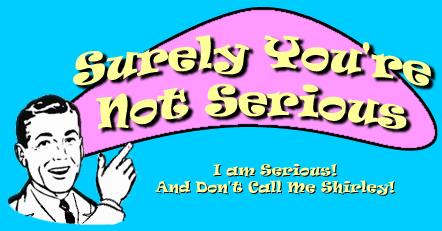I found a pretty articulate rendition of the case for relativism in Scott Adam’s “Dilbert Blog“. (Caution: He uses dirty words.) Scott feels strongly that free will is a myth and talks about it often. In this post, he (perhaps unintentionally) ties his crusade to defeat the free will myth to his Liberal relativism.
If you think about it, wars are generally fought because of a false sense of certainty. Usually some leader thinks he is a God, or talks to God, or descended from the Gods, or thinks God gave his people some particular piece of real estate. The leader’s opinion is the most certain in the land. People flock to certainty and adopt the certainty as their own. The next thing you know, stuff is blowing up.
That’s certainly true, and I don’t deny it. (Liberals are not stupid. I just don’t agree with their solution to the obvious problem.)
You can take any major problem in the world and identify a key culprit who has more certainty than he or she should. For example, Osama Bin Laden is certain that Allah exists, and he’s certain that humans can know what an omnipotent being wants us to do. That hasn’t worked out well for anyone.
How about the problem of discrimination? The root cause is a bigot’s certainty that ethnicity is more important than individual differences. He shouldn’t be so certain. You don’t need to completely change a bigot’s mind to cure discrimination; it would be a huge step to make him doubt he can accurately judge people by their ethnicity.
Ooh! He even used the bigotry concept from my big Liberalism post. He’s putting himself neatly into the Liberal mold.
Again, I agree that making disparaging assumptions about a person because of how they look is a dangerous thing. But I believe even Mr. Adams would agree that, when used intelligently (with discrimination) that sometimes you can, in all correctness, call a spade a spade.
There aren’t many ideas that have the potential to change the world. But the idea that we have no free will has to be on the short list. Once you accept free will as an illusion, it necessarily makes you wonder how certain you are about the rest of your reality. When you lose your own irrational sense of certainty, you are less likely to discriminate, to judge, and to believe a lunatic leader who tells you he’s certain.
Did you catch that? “Your own irrational sense of certainty.” So anyone who is certain about anything is irrational? Even when you are certain that there is no free will? See, he starts off in the right direction (i.e. question authority, question your own assumptions, question your faith), but then he suddenly makes a sharp left turn and assumes that any “certainty” (in other words, any absolute truth) is irrational.
I know, I’m reading into it and putting words into his mouth, straw man, blah blah blah. But the foundation is there. The basic, flawed reasoning underpins nearly everything Adams writes. I love his comic strip. I enjoy his blog. But I disagree with his underlying belief. I agree with the observations, but I disagree with the hypothesis.
The reason Bin Laden is bad is not because he his certain of his beliefs. It’s because his beliefs are wrong. Dogma is not in and of itself evil. You have to look at what the dogma is based on. You have to investigate. A Liberal would say that faith in anything is irrational. I say that blind faith is irrational, but faith is necessary.
You must be willing to inspect your faith. Be willing to test it. The Bible teaches us to be sure of what we believe. That is, don’t just believe. Know what you believe and why you believe it. The Bible says there will be false teachers and because of that, you have to question the authority of any teacher. On this point, Adams and I come a bit closer to agreement.
You can introduce some doubt into your life and still keep your religious faith, morality, and all of the social and psychological benefits you always enjoyed. Faith would be meaningless without a pinch of doubt to give it context. In particular, it would be helpful to doubt that your religious leaders know the mind of God. A little bit of doubt can be a healthy thing.
Next Post (Thanks to Armed Resistance) >>
Comments (2)



